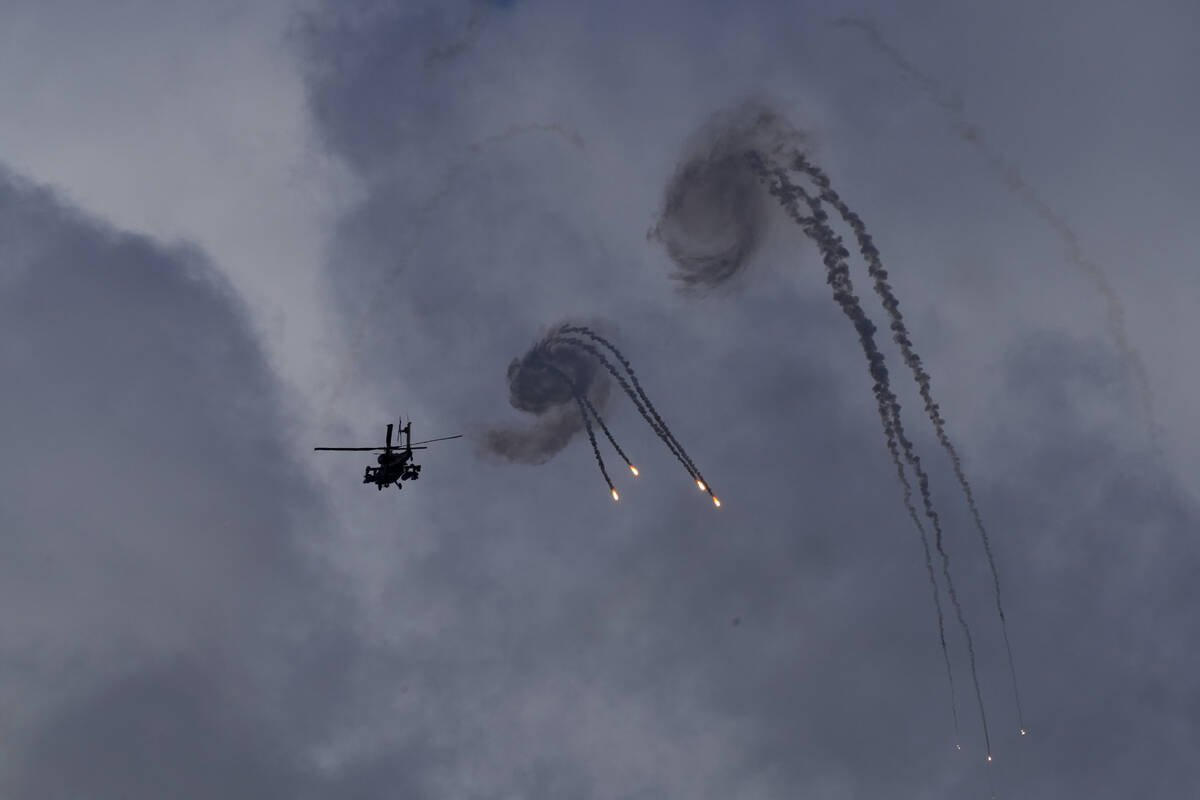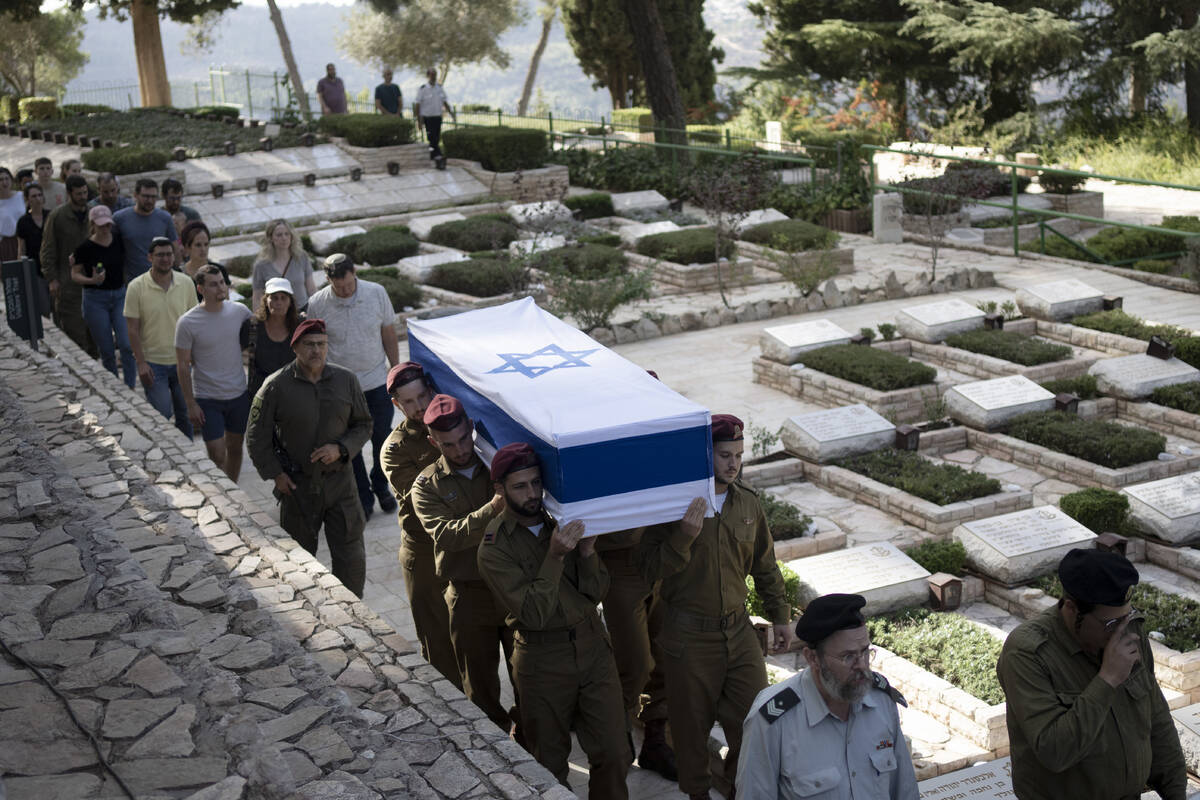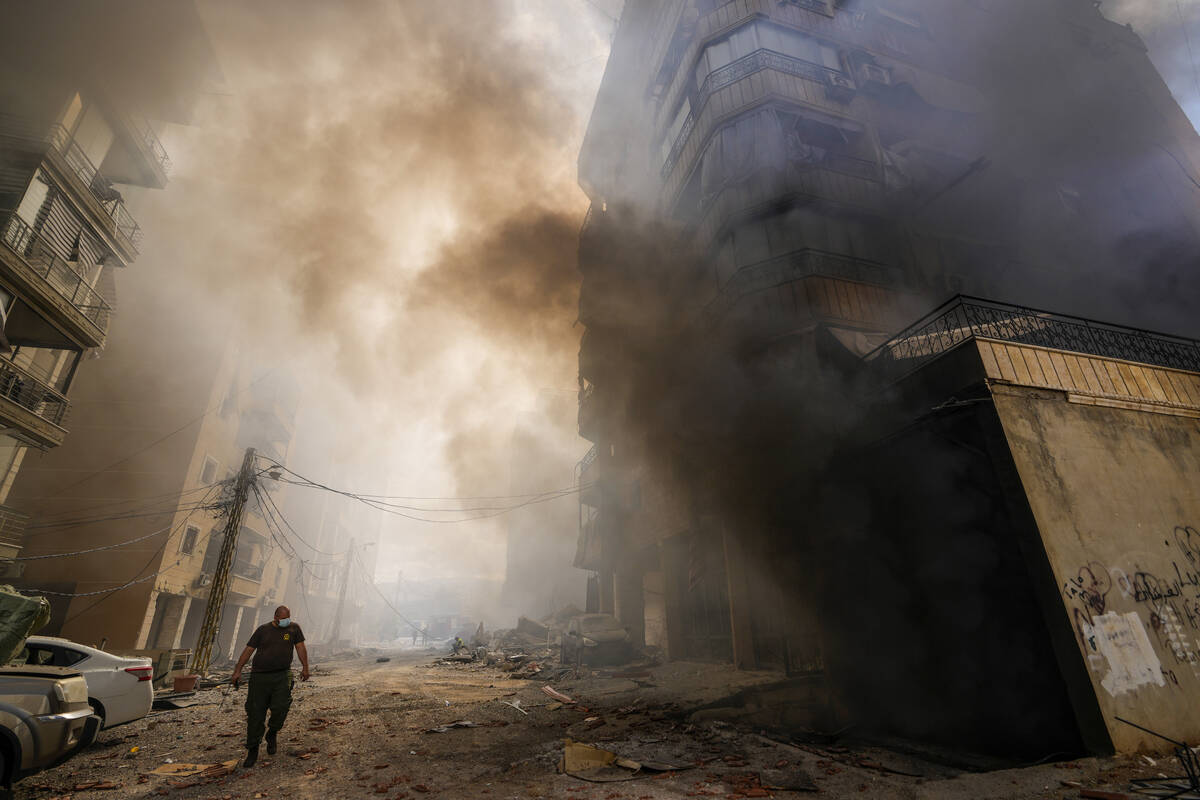Israel vows retaliation for massive Iranian missile attack
Benjamin Netanyahu vowed to retaliate against Iran after it fired about 200 ballistic missiles at Israel, a major escalation that world powers fear could spiral into a Middle East-wide war.
Israel said most of the barrage of missiles on Tuesday evening was intercepted and reports indicated only one person, a Palestinian who was in the West Bank, was killed. Fighting, meanwhile, spread in southern Lebanon, where the Israeli army Wednesday suffered its first fatality since starting a ground operation this week.
The U.S., whose warships helped shoot down the projectiles, similarly said the attack “appears to have been defeated and ineffective.”
Still, the salvo was even more dramatic and dangerous than the 300 missiles and drones Iran fired at Israel in April. This time, Tehran gave less warning and its rockets penetrated far deeper into Israeli territory, with cities including Tel Aviv and Hod Hasharon being hit and having their night-time skies lit up.
“Iran risks setting the entire region on fire — this must be prevented at all costs,” said Germany’s Chancellor Olaf Scholz.
Iran said its latest move was a reprisal for Israel’s devastating attacks on Lebanon-based Hezbollah, Tehran’s most important proxy militant group. On Friday, Israel assassinated Hezbollah’s leader, Hassan Nasrallah, in an air strike on Beirut. That came after days of intense bombing that killed several of the group’s commanders, while on Monday night Israel stepped up its campaign by sending troops into Lebanon.
The immediate signals from Iran after Nasrallah’s killing were that it would avoid a direct attack on Israel, with new President Masoud Pezeshkian having repeatedly said in recent weeks he wants better relations with the West to ease economic sanctions on the Islamic Republic.
Yet hardline elements within the government and Islamic Revolutionary Guards Corps probably convinced Supreme Leader Ayatollah Ali Khamenei he needed to act more firmly with Hezbollah being hammered.
He was likely “coming under increasing pressure from the Revolutionary Guards to come off the sidelines to respond to Israel in a manner that would reestablish a measure of deterrence,” said Helima Croft, a strategist at RBC Capital Markets and a former analyst at the Central Intelligence Agency.
Iran said it aimed at military sites and that the operation was a success. Its state media claimed 90% of the missiles hit their targets, something the initial U.S. and Israeli analysis suggested was incorrect. In some parts of Iran, crowds gathered to celebrate.
“Iran made a big mistake tonight, and it will pay for it,” Netanyahu, the Israeli prime minister, said. “The regime in Iran does not understand our determination to defend ourselves and our determination to retaliate against our enemies.”
In April, Israel hit back at Iran with a limited strike on an air base that caused little damage. This time, there’s plenty of pressure within Israel for Netanyahu to respond more forcefully.
Israel’s response could come within days and potential targets include the OPEC member’s oil infrastructure, military bases and — in potentially the most extreme scenario — nuclear facilities.
Yair Lapid, an Israeli opposition leader and former prime minister, said Iran must pay “a significant and heavy” price.
Israel should “destroy Iran’s nuclear program, its central energy facilities,” according to Naftali Bennett, also a former leader and one of Netanyahu’s main political rivals.
The U.S. says it’s ready to defend Israel and that there will be “severe consequences” for Tehran because of Tuesday’s attacks.
Iran said that should Israel “dare” to retaliate, a “crushing response will ensue.”
Oil prices, gold and U.S. Treasuries jumped late Tuesday when the U.S. said Iran was preparing an attack, though they later pared some gains when it became clear the barrage had caused few casualties.
Brent crude rose another almost 3% on Wednesday to above $75 a barrel. Yet it’s still down in the last month, suggesting traders do not believe there will be major supply disruptions in Iran or other parts of the oil-rich Gulf.
The attacks were the latest escalation of a wider conflict that began when Hamas swarmed southern Israel from Gaza on Oct. 7 last year, killing 1,200 people and kidnapping 250.
Israel’s subsequent offensive on Gaza has killed 41,000 people, according to the Hamas-run health ministry in the Palestinian territory. That’s stoked widespread anger against Israel across the Middle East and other parts of the world.
Hezbollah started striking Israel in solidarity with Hamas on Oct. 8. Both groups are backed by Iran and considered terrorist organizations by the U.S..
In recent weeks, Israel has turned its main focus from Gaza to Hezbollah, wiping out almost its entire leadership and a significant part of its stockpile of missiles and other weaponry.
Israel says it’s conducting “targeted ground raids” in Lebanon. Its intervention has raised fears its soldiers could suffer heavy casualties and get bogged down for months, if not longer.
Hezbollah said its fighters clashed with Israeli soldiers in the village of Odaisseh on Wednesday and forced them to retreat. The Israeli military said it’s sending infantry and armored reinforcements to southern Lebanon.
Netanyahu says he was forced to take more aggressive action against Hezbollah because diplomatic efforts by the likes of the U.S. and France failed to stop the group’s missile and drone attacks on Israel. He also wants to enable tens of thousands of displaced civilians to return to their homes in the north.
Israel’s air strikes on Lebanon have killed hundreds of civilians in the past two weeks, according to the country’s officials.
The U.S. has beefed up its military posture in the Middle East in the past few days. The Pentagon on Monday said it would send a few thousand additional troops and fighter jet squadrons to the region.
























